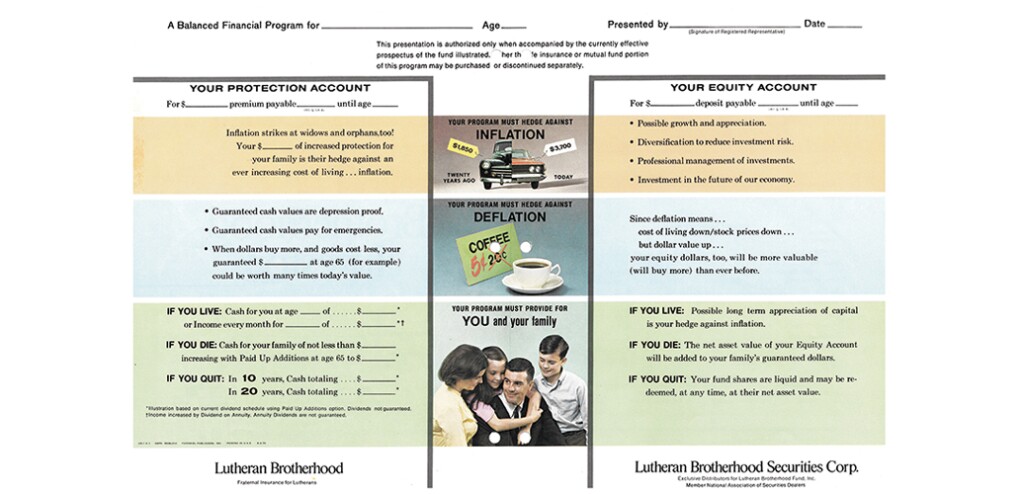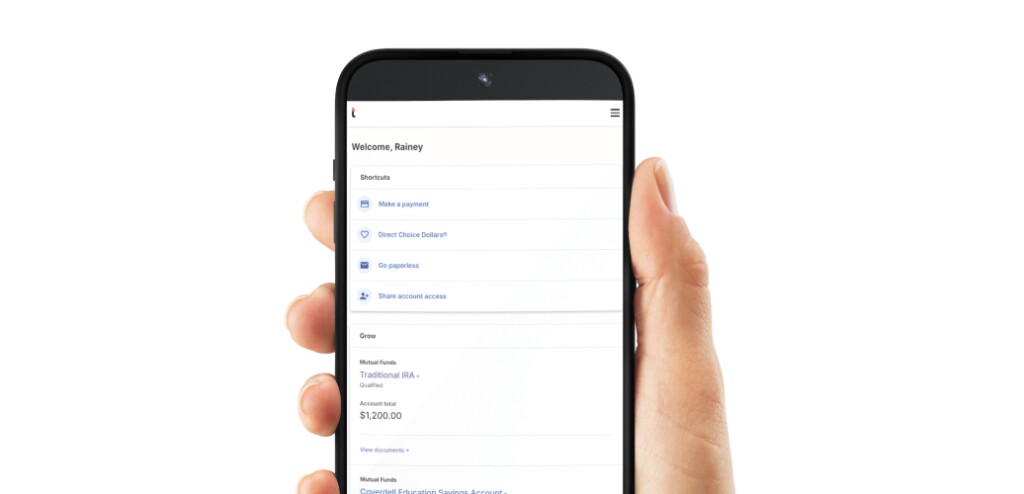Investing can offer you a path to growing wealth steadily over time, helping you reach goals you've envisioned for your family and your retirement years. But it does come with its share of risks. Building a diversified portfolio can help to hedge those risks, spreading your assets across different types of funds.
Open-end mutual funds and exchange-traded funds (ETFs) are two types of fund categories that give you access to a basket of stocks, bonds and other assets. They share some characteristics, and you even may consider investing in both. Let's break down mutual funds vs. ETFs to see how they might fit in your financial strategy.
What is a mutual fund?
In a
- Most mutual funds are actively managed. A smaller percentage of mutual funds passively track the performance of individual market indexes, like the S&P 500.
- You buy and sell shares at a set price at the end of the trading day through either the company that created the fund or a brokerage.
- The price of a mutual fund is based on the fund's net asset value (NAV), or the total market value of all the assets contained in the fund. If it holds $10 million of stocks and has 1 million shares, each share is worth $10. When you buy or redeem shares during the day, you won't know what the price is until the next NAV is calculated.
Are ETFs mutual funds?
While a common mistake to make, an
- Most ETFs are
passively managed and simply aim to mirror the return of indexes. The percentage of actively managed ETFs is small but on the rise. - You buy and sell shares through a brokerage account at fluctuating market prices.
- The price you pay to buy or sell ETF shares may not match the value of the ETF's underlying holdings. The ETF can be priced above its NAV (at a premium) or below its NAV (at a discount) due to factors like investor demand for the fund.
Mutual funds vs. ETFs: 5 key differences
You have preferences as an investor. When deciding which of these funds may be a better fit for your plan, factor in the importance of fees, taxes, transparency and how you like to handle dividends and capital gains distributions.
1. ETFs typically have lower fees than mutual funds
Because most ETFs are passively managed, these kinds of funds are less costly to operate. As a result, they generally have lower operating and administrative fees known as
In addition, some share classes of mutual funds have sales charges called "loads." ETFs don't have loads. Before investing in a mutual fund or ETF, be sure to research its expense ratio as well as potential brokerage commissions and other transaction costs.
2. ETFs tend to be more tax-efficient
Both types of funds earn a
In addition, ETFs are built in a way that minimizes capital gains distributions. Generally speaking, ETFs have the ability to meet redemptions in-kind, rather than by selling the portfolio securities.

How do index funds work?
3. Mutual funds come with investment minimums
Many mutual funds require you to invest a flat dollar amount. Some companies will reduce the minimum if you sign up for an automatic purchase plan.
ETFs don't come with investment minimums. You can buy an ETF for the price of a single share. Alternatively, if you prefer to invest a certain dollar amount, you may be able to buy a fractional share of an ETF.
4. ETFs may offer more frequent insight into holdings
If you only seek to put your money in sectors or companies that align with your values, you need to know what mutual funds or ETFs are holding before you add them to your portfolio. Some ETFs tell the public which assets they hold each day, but you'll need to wait longer for most mutual funds. They generally disclose their holdings on a monthly or quarterly basis.
5. It's easier to reinvest dividends & capital gains distributions with mutual funds
If a mutual fund pays
FAQs about mutual funds & ETFs
| | ||
Can you invest in a basket of stocks, bonds & other assets? |
Yes |
Yes |
When are they traded? |
End of the trading day |
Throughout trading day |
Do you need a brokerage account to buy and sell? |
No, you can alternatively have an account with the fund company |
Yes |
How are they priced? |
Based on fund's net asset value (NAV) |
Can be priced above (premium) or below (discount) the NAV |
When are portfolio holdings disclosed? |
Generally monthly or quarterly |
Potentially daily |
Are the majority of funds actively or passively managed? |
Majority actively managed |
Majority passively managed |
Is it better to invest in ETFs, mutual funds or both?
The answer lies with you and your needs—although owning both kinds of funds be an effective strategy for
ETFs may be a good match if you're comfortable with exchange-traded investments, you prioritize
Mutual funds may be right for you if trading in the market isn't your cup of tea, you're seeking a wider breadth of actively managed options, and you prefer to reinvest your dividends and capital gains distributions.
Get in touch with a local







